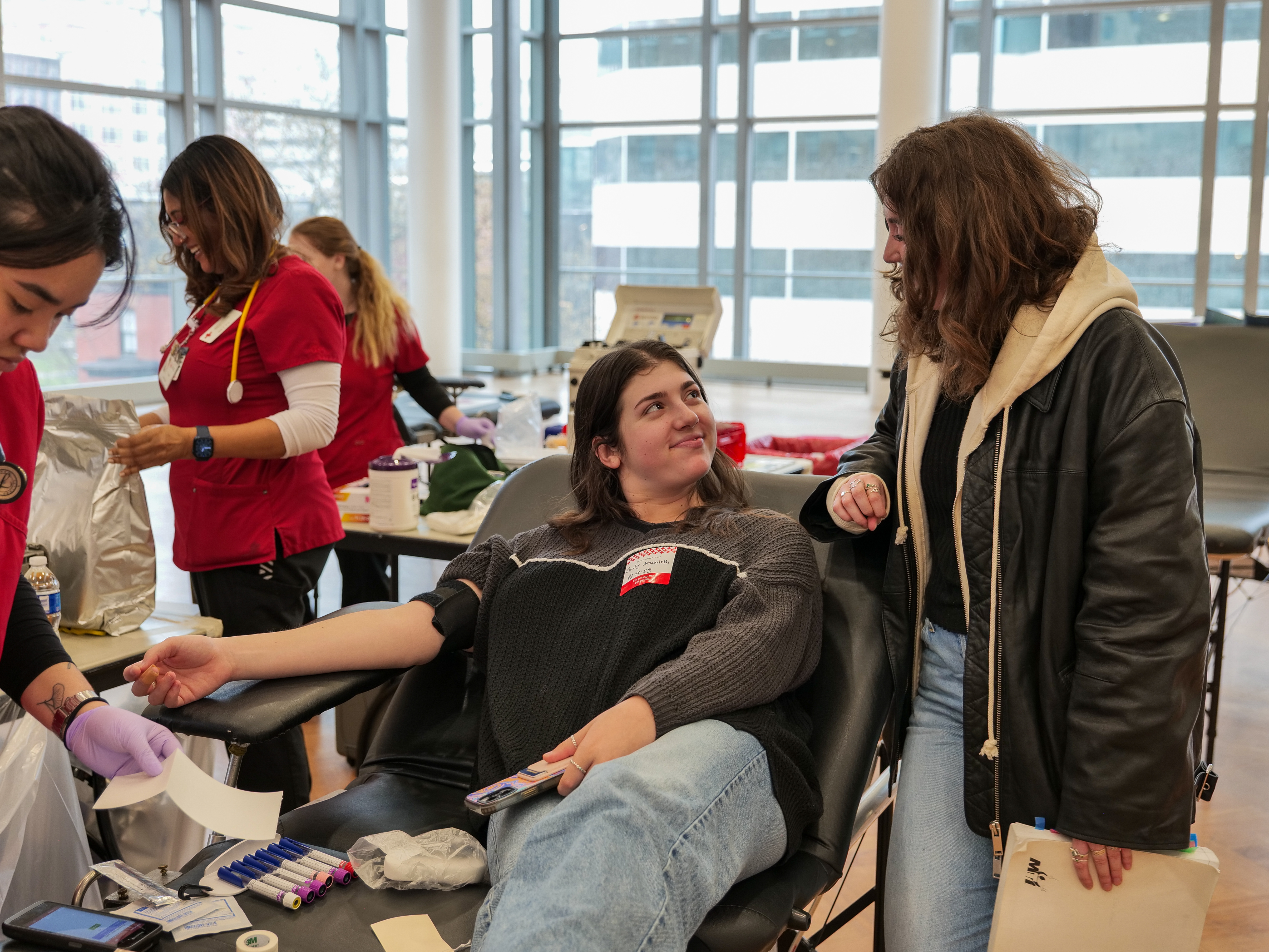Popular coffee shop and bakery Paul closed in late March, leaving yet another open space in the
Western Market cafeteria on Pennsylvania Avenue. Image by Mathylda Dulian
Diptych image of how bagels at Bullfrog Bagels are made to order with fresh ingredients sourced from local farmers. Image by Mathylda Dulian.
Chef Solomon Johnson, co-owner of The Bussdown D.C., working in his flagship restaurant located in
Western Market cafeteria on Pennsylvania Avenue. Image by Mathylda Dulian.
Lunch rush in Western Market cafeteria full of students and office employees getting a taste of all the unique options at the cafeteria, featuring The Bussdown D.C. Image by Mathylda Dulian
Bullfrog Bagels uses their own secret recipe that Jeremiah Cohen, the founder and owner of Bullfrog
Bagels, would not disclose. Image by Mathylda Dulian.




